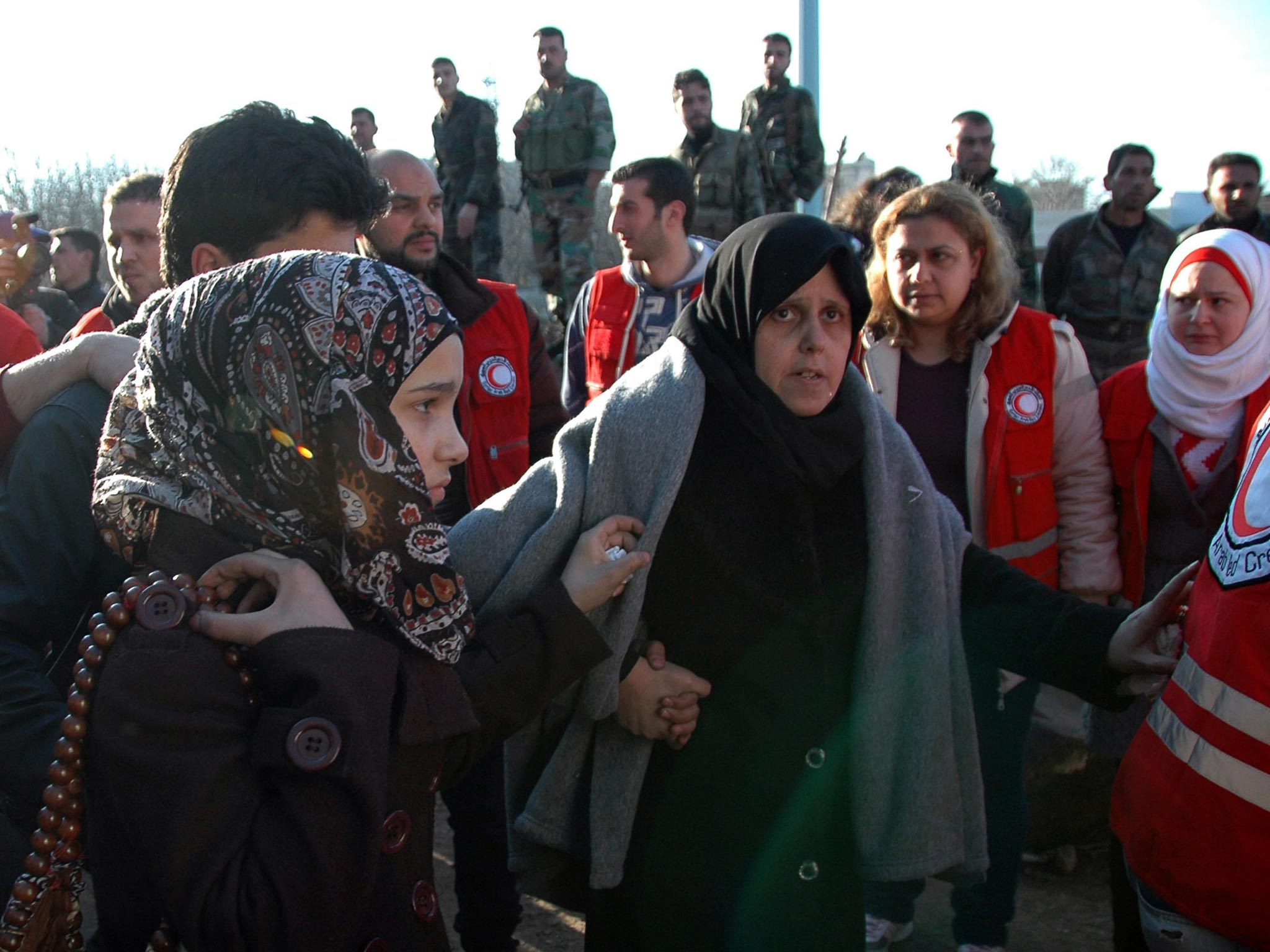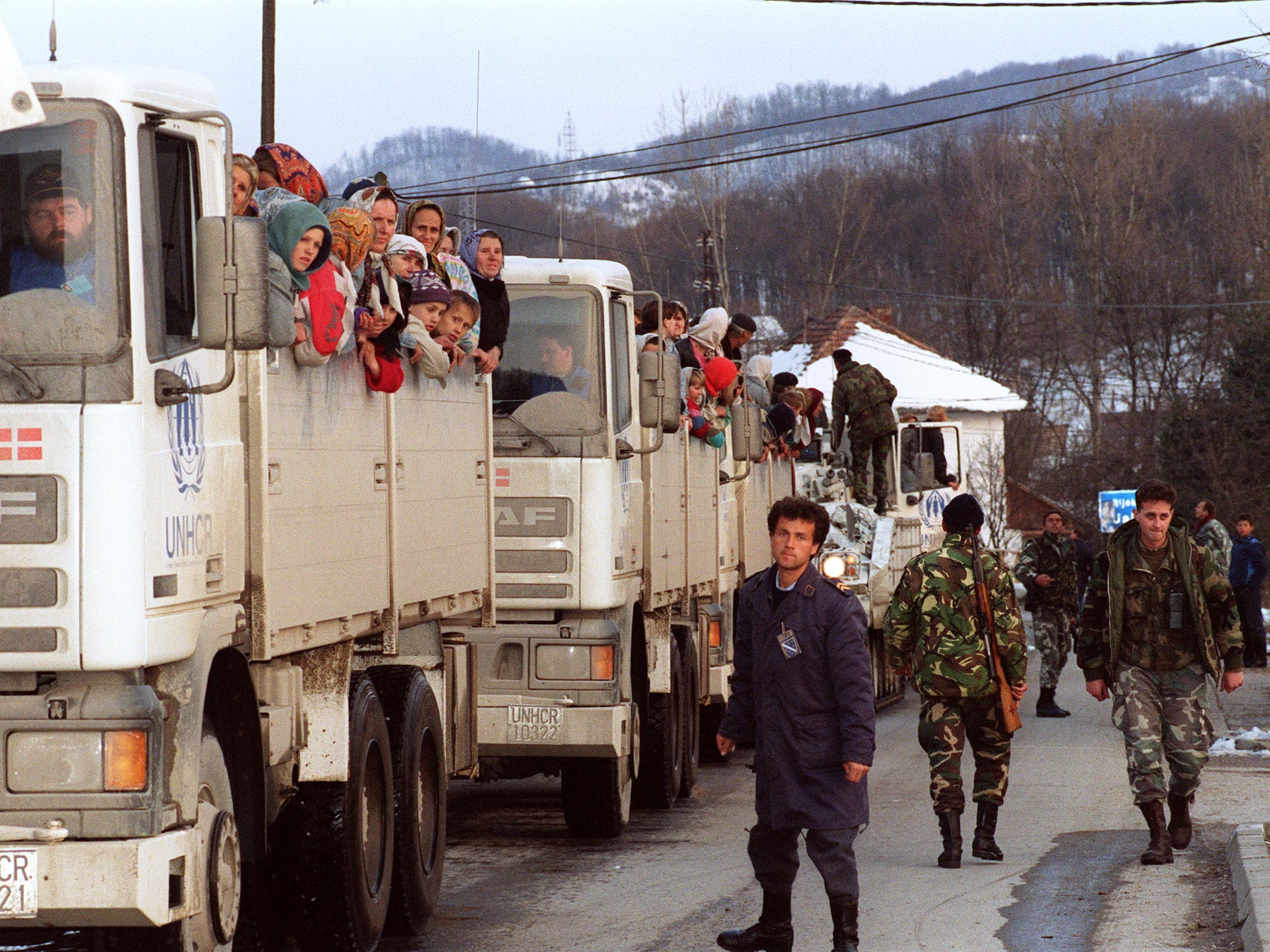Syria conflict: The spectre of Srebrenica hangs over besieged Old City of Homs, warns William Hague

Your support helps us to tell the story
From reproductive rights to climate change to Big Tech, The Independent is on the ground when the story is developing. Whether it's investigating the financials of Elon Musk's pro-Trump PAC or producing our latest documentary, 'The A Word', which shines a light on the American women fighting for reproductive rights, we know how important it is to parse out the facts from the messaging.
At such a critical moment in US history, we need reporters on the ground. Your donation allows us to keep sending journalists to speak to both sides of the story.
The Independent is trusted by Americans across the entire political spectrum. And unlike many other quality news outlets, we choose not to lock Americans out of our reporting and analysis with paywalls. We believe quality journalism should be available to everyone, paid for by those who can afford it.
Your support makes all the difference.The Srebrenica massacre of 1995, in which more than 8,000 men and boys were killed, could be repeated in Syria’s Old City of Homs, William Hague has warned.
Writing in The Independent as delegates for the Assad government and the opposition Syrian National Coalition meet for another round of talks, the Foreign Secretary calls for the UN Security Council to “turn up the heat” on the government, to demand “full and unimpeded humanitarian access” to areas of the country in desperate need.
Hundreds of women, children and men over 55 or under 15 years-old were allowed to leave the besieged Old City of Homs during a 72-hour ceasefire brokered by the governor of Homs and a local UN figure over the weekend. Food and medical aid was delivered to those remaining within the Old City, which has been under siege for at least a year. Talks were under way last night to extend the ceasefire.
However, Mr Hague warns that “we should all be gravely concerned” about the fate of those who have left the city, and those who remain.
“Will the evacuees be protected, or will they persecuted by the regime? Will those who remain be treated as fair game for even more devastating attacks by Assad’s security forces? The lessons of Srebrenica should haunt us all, when the deliberate separating out of women and children preceded the massacre of 8,000 captive men and boys,” Mr Hague writes.
There were reports on Monday that some men leaving the Old City were detained. Part of the terms of the agreement brokered by the UN and signed by both sides, including the commanders of some 30 rebel factions in the Old City, is that fighters who lay down their weapons can take advantage of an amnesty. But armed opposition members are concerned that they may be handing themselves over for imprisonment, torture and execution.
A difference between Srebrenica and Homs Old City is that the Bosnian Muslim men and boys were primarily civilians while a high but unknown proportion of males of military age besieged in the Old City are likely to be armed and have taken part in the fighting. The governor of Homs, Talal al-Barazi, told The Independent in an interview in Homs last week that it would be a difficult military operation for the Syrian army to storm the warren of narrow streets in the Old City.

Hatred and distrust between the two sides in Syria is now so deep that even a shaky ceasefire deal has been negotiated with great difficulty by the UN. Little progress has been made at the “Geneva II” talks, which began again this week.
Mr Hague said the UN Security Council “should demand an immediate end to the use of starvation as a weapon of war, and to impunity for violations of international humanitarian law and human rights abuses. And it should call for the regime to stop using barrel bombs and other kinds of weaponry against innocent civilians across Syria.”
Yet the Security Council’s hands have been tied on previous occasions, when opposition from Russia and China has scuppered such resolutions against the Assad regime.
Mr Hague warns that “if Assad continues to cling to power, the violence and suffering will only increase.”
On the ground in Syria, President Bashar al-Assad’s forces control 13 out of 14 Syrian provincial capitals and most of the main roads. Without foreign military intervention, and with the support of Russia and Iran, he remains in a powerful position.
Join our commenting forum
Join thought-provoking conversations, follow other Independent readers and see their replies
Comments